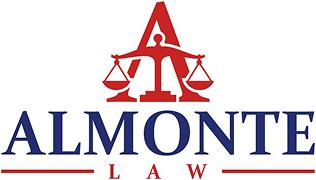Hospice Fraud Investigations & Parallel Criminal-Civil Liability: A Guide from Robert Almonte, Former Federal Prosecutor
When hospice providers find themselves the subject of an investigation, the stakes are high. Not only can there be civil and administrative exposure under laws like the False Claims Act, but in many cases criminal liability looms as well. At Almonte Law, led by former federal prosecutor Robert Almonte II, we defend many individuals and organizations facing just this sort of complex exposure. Understanding the process — and the tools the government uses, like Civil Investigative Demands (CIDs) — is key to mounting a strong defense.
Why Hospices Attract Federal Scrutiny
Federal authorities often pursue hospice organizations because:
- Billing risk under Medicare/Medicaid: Claims for ineligible patients or undocumented services.
- False Claims Act (FCA) violations: Billing without medical necessity, inadequate certifications, or falsified documentation.
- Anti-Kickback Statute (AKS) & Stark Law: Referral arrangements or payments that do not meet safe harbor standards.
- Qui tam lawsuits: Whistleblowers file cases under seal, which DOJ may adopt and pursue criminally or civilly.
- Data anomalies: High live discharges, extended lengths of stay, spikes in general inpatient (GIP) usage, or concentrated referral sources.
What “Parallel Proceedings” Means
Hospice fraud investigations rarely unfold on a single track. Instead, parallel proceedings occur, where civil, administrative, and criminal matters run at the same time:
- Criminal: DOJ and U.S. Attorneys may pursue health care fraud, conspiracy, false statements, or obstruction charges.
- Civil (FCA): DOJ can intervene in qui tam lawsuits or pursue treble damages and penalties.
- Administrative: CMS and HHS-OIG can suspend payments, revoke billing privileges, or impose Corporate Integrity Agreements (CIAs).
Because these tracks often overlap, statements made in civil discovery (like depositions) can be used against providers in criminal court.
Civil Investigative Demands (CIDs): A Powerful Government Tool
One of the most common tools in hospice fraud cases is the Civil Investigative Demand (CID). Unlike ordinary subpoenas:
- Issued directly by DOJ: A CID doesn’t require court approval.
- Broad in scope: CIDs may demand documents, written interrogatory responses, or oral testimony.
- Compulsory: Refusal to comply can trigger court enforcement.
For hospice providers, CIDs often request:
- Patient eligibility records and certifications of terminal illness.
- Physician face-to-face notes, IDG meeting documentation, and care plans.
- Billing data, referral logs, and marketing agreements.
- Internal emails, policies, and training materials.
Defense Tip: Responding to a CID requires careful negotiation. Counsel can narrow the scope, negotiate deadlines, and ensure privileged material remains protected. An unfiltered response risks handing prosecutors evidence for both FCA and criminal cases.
How Criminal and Civil Tracks Interact
- Discovery overlap: Documents produced for a CID can be reviewed by criminal investigators.
- Stays and Fifth Amendment: Individuals may invoke the Fifth in civil testimony; courts may stay civil cases to avoid prejudicing criminal matters.
- Settlement doesn’t end exposure: Even if a civil FCA case settles, the criminal investigation may continue.
Key Defense Strategies
- Engage counsel immediately: Especially when served with a CID, subpoena, or search warrant.
- Preserve evidence: Secure EHRs, certifications, emails, and billing records.
- Conduct privileged internal review: Assess medical necessity, eligibility documentation, and referral arrangements.
- Retain experts: Clinical reviewers and statisticians can challenge government sampling and extrapolation.
- Unified strategy: Ensure messaging is consistent across civil, criminal, and administrative fronts.
Why Choose Robert Almonte
As a former federal prosecutor, Robert Almonte II understands how DOJ uses CIDs, subpoenas, and grand jury investigations to build cases. That insight allows him to anticipate government strategy and protect clients from unnecessary exposure. At Almonte Law, we help providers:
- Challenge overbroad CIDs and subpoenas.
- Protect privileged communications.
- Respond strategically to parallel proceedings.
- Negotiate with DOJ, HHS-OIG, and CMS.
- Seek outcomes that avoid indictment, exclusion, or crippling settlements.
I’ve Been Contacted by DOJ — What Do I Do?
If you’ve been contacted by the Department of Justice — whether through a CID, subpoena, or agent phone call — the most important thing you can do is pause and call an experienced federal defense attorney immediately.
- Do not speak to investigators without counsel. Even informal conversations can be used against you in both civil and criminal proceedings.
- Do not destroy or alter records. Doing so risks obstruction charges. Instead, preserve everything and let your attorney handle production.
- Do not assume it’s “just civil.” Civil and criminal tracks often overlap, and what starts as an FCA inquiry may become a criminal indictment.
- Act quickly. The earlier your defense team engages with DOJ, the better your chances of narrowing scope, negotiating resolution, or avoiding criminal escalation.
At Almonte Law, I use my experience as a former federal prosecutor to evaluate the government’s posture, anticipate their strategy, and protect your rights from the very first contact.







